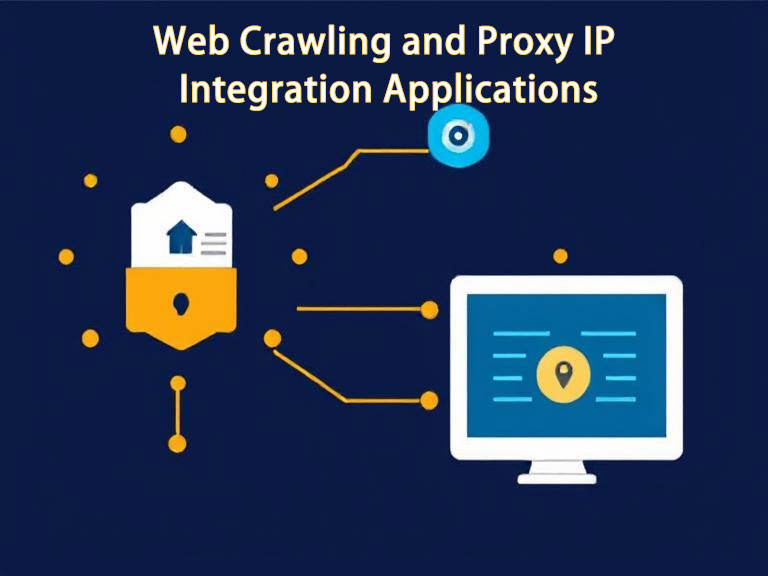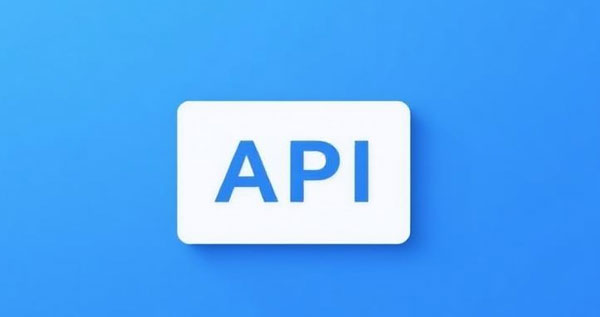Web Crawling and Proxy IP Integration Applications
With the rapid increase in internet data, web crawlers have become an essential tool for information gathering and data analysis. Whether used for search engine optimization (SEO), market research, academic research, or financial analysis, web crawlers play a significant role. However, web crawling tasks often face a range of challenges, with one of the most common being how to efficiently and consistently obtain data. At this point, proxy IPs serve as a valuable assistant for web crawlers, helping bypass anti-crawling mechanisms, enhance data collection efficiency, and protect user privacy.

1. Introduction to Web Crawlers
1.1 What is a Web Crawler?
A web crawler, also known as a spider or web robot, is a program used to automate browsing websites and extracting information. The operation of a web crawler is similar to that of a search engine, where it visits target websites based on preset rules and extracts structured data. Through this process, web crawlers can efficiently collect and store large amounts of information for subsequent analysis and use.
1.2 Applications of Web Crawlers
Web crawlers have wide-ranging applications across multiple industries and fields, including:
Search Engine Optimization (SEO): Crawlers help analyze website data and rankings, optimizing a site’s performance in search engines.
Market Research: Crawlers collect competitor pricing, product information, etc., helping businesses formulate competitive strategies.
News Aggregation: Crawlers automatically collect the latest reports from news websites, compiling content.
Academic Research: Crawlers gather large-scale academic data for analysis and machine learning.
Financial Analysis: Real-time data collection from stock markets, economic indicators, etc., supporting investment decisions.
Social Media Monitoring: Analyzing comments and trends on social platforms to assess brand image and user feedback.
1.3 Main Challenges Faced by Web Crawlers
While web crawlers have extensive applications, they also face several challenges during operation:
Challenge | Description |
|---|---|
Anti-Crawling Mechanisms | Many websites use captchas, IP bans, and other measures to block crawlers. |
Privacy Issues | Crawlers may expose real IP addresses, increasing the risk of privacy breaches. |
Website Structure Changes | Frequent updates to websites can cause crawler programs to fail. |
Large-Scale Data Processing | High-frequency data collection consumes considerable storage and computational resources. |
Dynamic Content | Some websites require JavaScript rendering, making it harder to scrape data. |
Network Bandwidth Limitations | Network delays or insufficient bandwidth may affect crawling efficiency. |
2. Proxy IPs: A Web Crawler’s Trusted Companion
2.1 Definition and Working Principle of Proxy IPs
A proxy IP (Proxy IP) refers to a server that acts as an intermediary, allowing users to access the internet through it. When using a proxy IP, the crawler’s requests are first forwarded through the proxy server, and the target website sees the proxy server’s IP instead of the crawler’s real IP. By using proxy IPs, crawlers can hide their real identities, bypass geographical restrictions, improve request concurrency, and avoid IP bans.
2.2 Necessity of Proxy IPs for Web Crawlers
Proxy IPs serve several key purposes in web crawling:
Preventing Crawler Failures: Frequent requests can lead to IP bans. By using proxy IPs and rotating them, crawlers can avoid being blocked and continue functioning normally.
Improving Crawling Efficiency: By concurrently using multiple proxy IPs, crawlers can greatly improve data collection speed, especially for large-scale data scraping tasks.
Obtaining Accurate Data: Some websites offer different data based on geographical locations. Using local proxy IPs can provide more precise data.
Enhancing Security: By using proxy IPs, crawlers can hide real IP addresses, protecting user privacy and avoiding being tracked.
3. Types of Proxy IPs and Their Application in Web Crawling
3.1 Dynamic Residential Proxies
Dynamic residential proxies come from real residential users, offering higher anonymity and helping avoid detection by anti-crawling systems. These proxies are ideal for tasks requiring high anonymity, such as market research, SEO monitoring, and especially when bypassing strict anti-crawling measures.
3.2 Dynamic Data Center Proxies
Data center proxies are provided by specialized data centers and are faster and more cost-effective. They are suitable for large-scale, high-frequency scraping tasks. Although they have lower anonymity, they are still a highly efficient choice when targeting websites with weaker anti-crawling mechanisms.
4. Choosing the Right Proxy IP Service
When selecting a proxy IP service, it is essential to tailor your choice based on the specific project requirements. Here are some factors to consider when choosing a proxy IP service:
Project Scale: Smaller projects may only need a small number of high-quality proxy IPs, while large projects may require more proxies and higher concurrency.
Target Website Features: For websites with strict anti-crawling mechanisms, residential proxies may be needed, while for sites with weaker anti-crawling measures, data center proxies will suffice.
Data Collection Frequency: High-frequency scraping tasks require a larger proxy pool and faster IP rotation.
5. Proxy IP Use Cases in Web Crawling (Recommended)
5.1 Acquiring Proxy IPs
Acquiring proxy IPs is a prerequisite for efficient data scraping. For example, Luckdata offers global coverage with proxy IP services, including dynamic residential proxies and data center proxies. Users can choose different proxy types based on their needs and configure them flexibly.
Luckdata’s proxy IP service provides over 120 million residential proxy IPs, supporting fast rotation and geographical location targeting. Users can obtain valid proxy IP addresses from different regions, bypassing geographical restrictions, and enhancing data collection reliability.
5.2 Practical Use Cases
Case 1: Bypassing Geographical Restrictions for Market Research
In conducting cross-country market research, we needed to scrape data from multiple e-commerce platforms across different countries. By using dynamic residential proxies from Luckdata, we were able to bypass geographical restrictions, access local e-commerce websites, collect product and pricing information, and perform competitor analysis. Through fast IP rotation and global location targeting, we could gather a large volume of data in a short time.
Case 2: Stock Market Data Scraping
For stock market data analysis, we needed to gather real-time data from multiple financial websites. Using dynamic data center proxies from Luckdata, we could efficiently scrape large volumes of data at a lower cost. The high-speed response and stability of data center proxies ensured that we could retrieve live stock market data for investment analysis.
Case 3: SEO Monitoring
For SEO optimization teams, scraping data from competitor websites is a common task. By using Luckdata’s residential proxies, we could simulate users from different geographical locations, avoiding IP bans while obtaining more accurate ranking data. The high anonymity of residential proxies also helped protect our privacy.
6. Conclusion
By combining proxy IPs, web crawlers can overcome numerous technical and legal barriers to successfully collect the required data. Luckdata’s proxy IP services, with their global coverage, fast response times, and high anonymity, have become an ideal choice for data scraping tasks across various industries. In practical applications, choosing the right proxy type and service based on project needs will help improve crawler efficiency, security, and stability, better supporting various data analysis tasks.




